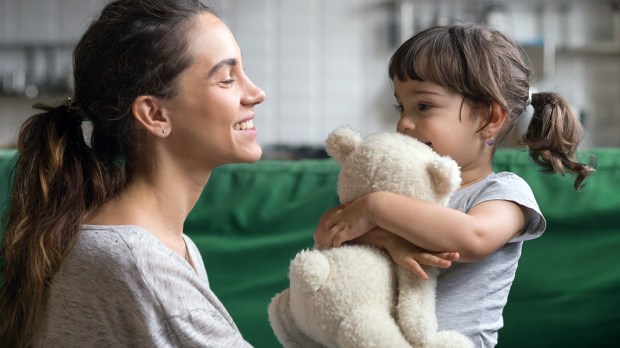If you’ve ever pried a tablet out of a screeching toddler’s hands, or watched your tween’s face harden into a sulking scowl after not receiving something she wants, you may have realized something: your child, like mine, has internalized a sense of materialistic entitlement.
If you’re inwardly kicking yourself for handing over the lollipop or the iPhone just so you can complete your grocery check-out without a scene, don’t panic. There’s a one-word antidote to the ugliness of entitlement — gratitude.
Most of us in the western world have an excess of stuff. A walk through Walmart is a good metaphor for many of our lives — overstimulating, excessive, and emphasis of quantity over quality. Just so. much. stuff. Advertisements on every screen and at every turn tell us we need more, different, better, newer. That what we have is not good enough, and that we’re missing out. That life will be fuller, more meaningful and fun if only we run out and buy XYZ. We absorb the message — and so do our kids.
In an effort to stop constantly tripping over things and to live more minimally — a concept that can only be taken so far in a household of eight — this spring I packed up half a dozen large bags of toys, clothes, books and other items from out of my kids’ rooms, and triumphantly raced to Goodwill to drop them off before any of the previous owners had a chance to protest. I discovered that since they still had plenty of other things to play with, and since I didn’t remove anyone’s favorite thing, my kids barely even noticed that a significant number of their possessions had gone missing.
We have so much. And yet we continue to add to the piles, and our kids continue to lose appreciation for the things they have, while at the same time wanting more.
What can we do?
A new study published in the Journal of Positive Psychology suggests that the remedy to what ails us lies in developing the important character trait of gratitude. The researchers studied a nationwide sample of more than 900 adolescents between the ages of 11 and 17, and found that increasing gratitude in the youth can not only decrease materialism, but also increase generosity.
They also conducted an experiment among 61 youth, who were asked to complete an eight-item measure of materialism and a four-item measure of gratitude assessing how thankful they were for the people and possessions in their lives.
The youth were then randomly assigned to keep a daily journal. One group was asked to record who and what they were thankful for each day, and the other group was simply asked to record their daily activities. After two weeks, the journals were collected and the participants were asked to take the same materialism and gratitude assessment again. The youth were also given ten $1 bills and told they could keep the money, or donate some or all of it to charity.
The group that kept the gratitude journal showed a significant decrease in materialism and an increase in gratitude, while the control group showed no change. Not only that, but the group that kept the gratitude journal was more generous than the other group, donating more of their earnings to charity.
What can we do to increase gratitude and decrease materialism and a sense of entitlement in our kids — and in ourselves?
The study authors suggest a “daily gratitude reflection” around the dinner table, having children and adolescents make posters of what they are grateful for, or keeping a “gratitude jar” where children and teens write down something they’re grateful for each week.”
Leading the way in our conversation, attitudes and habits is important, as is including prayers of thanksgiving as a part of our prayers with our kids. Paring down material excesses and taking a slower and more thoughtful approach to our purchases can help. Having our children take the time to work to ‘earn” something they want, instead of being quick to fulfill their wants, can help. I plan to do these things with my own children. And as I’m asking them “What you are thankful for today?” I’ll be asking myself, too.

Read more:
Materialism Robs Us of Our Humanity, Warns Pope Francis

